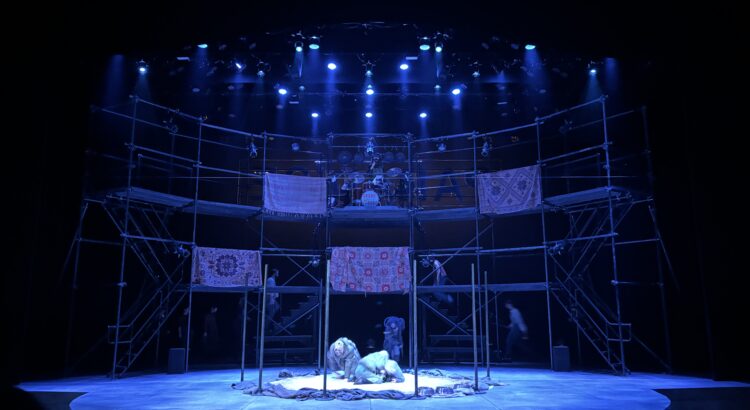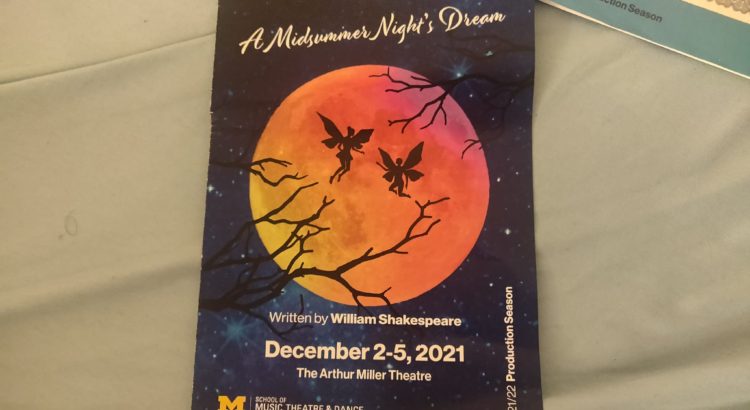Thursday, October 3rd | 7:30pm | Arthut Miller Theater
It’s been 84 years since Julius Caesar was produced at Michigan, and I’m certain that production was much different than the Theater & Drama department’s in Arthur Miller last weekend.
A story about aggressively overthrowing power is a timely one, and set in a matriarchal society is even more intriguing. In this adaptation by Pricilla Lindsay, she brings out a new edge from an entirely “female-presenting” cast. Pronouns are changed to “she” and words shifted to “sister” and “queen” in the script, breeding a new layer of complexity to the dialogue.
Oftentimes Shakespeare is so dense that it’s difficult to follow thoroughly, but I found this production quite accessible from the actor’s commitment to the text, especially with the adjustments. I won’t say Shakespeare is my favorite thing to watch, but this production surely piqued my interest.
Contrary to the titular role, this story sheds most of its light on Brutus’ arc. She goes through a significant journey from a supporter of Caesar to a defiant adversary until her subsequent death in Act II. Katie Snowday (Brutus) brought a devoted, intense, and fully fleshed-out character into the theater. Her performance was beautifully concise and crucial to the production’s overall clarity.


The costuming was reminiscent of the 2010s, the Renaissance era, and Star Wars all at the same time—perhaps reflecting a deliberate ambiguity in setting. The use of textures and shapes is thoughtful, but the theatrical universe was hard to tie down. However, these elements evoked femininity, such as curved elephant tusks in the set rather than traditional columns, and Caesar’s banner of purple and yellow, akin to the suffragists of the early 20th century.
Caesar’s character lacked the piercing arrogance one might expect—perhaps lost in the direction of the re-adaptation. Instead, I encountered an indifferent and occasionally warm Caesar, who was aware of her own splendor, but only because others were telling her so. This portrayal made me question the true eminence of her reign shaped by the mercurial Roman ensemble. Is any form of leadership merely a glorified popularity contest?
Shakespeare’s intent to warn against violence as a means of political gain remains clear and this production offered more questions than answers with its feminine twist. Julius Caesar continuously begs the question: Do we become masters of our own fate? Perhaps, but it’s certain that Ms. Snowday has mastered hers.
“Julius Caesar” runs September 26 through October 6th in the Arthur Miller Theater.
Images thanks to Peter Smith & SMTD Marketing.







